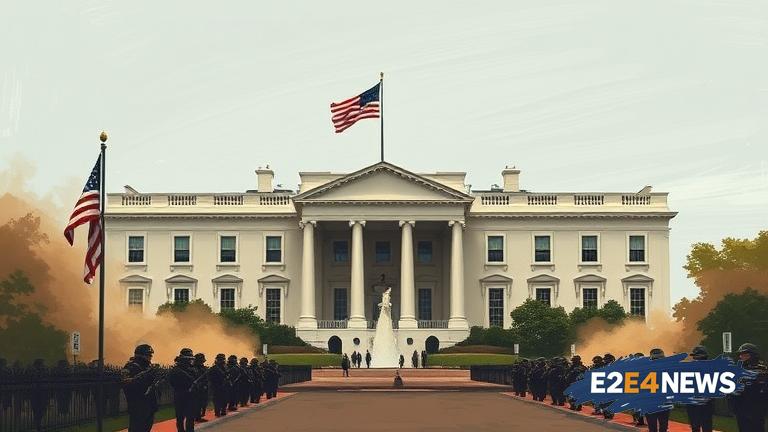In a recent announcement, President Trump has revealed a plan to change the name of the US Defense Department to the Department of War. This proposal has sparked a heated debate among lawmakers, experts, and the general public. The name change is intended to reflect the department’s primary focus on national defense and military operations. However, critics argue that the new name could be perceived as overly aggressive and militaristic. The US Defense Department has been known by its current name since 1947, when it was established in the aftermath of World War II. The department’s name was changed from the War Department to the Defense Department to reflect a shift in focus from solely war-fighting to a broader range of national security concerns. Despite this, the department’s core mission has remained largely unchanged, with a continued emphasis on protecting American interests and defending the nation against external threats. Proponents of the name change argue that it would help to clarify the department’s role and responsibilities, and would provide a more accurate reflection of its primary functions. However, others have expressed concerns that the new name could be seen as a departure from the department’s traditional focus on defense and diplomacy. The proposal has also raised questions about the potential impact on international relations and global perceptions of the US military. Some have argued that the name change could be perceived as a sign of increased militarism and aggression, which could potentially damage relationships with other countries. Others have suggested that the change could be seen as a nod to the department’s historical roots, and a recognition of the important role that the military has played in shaping American history. The proposal is still in its early stages, and it remains to be seen whether it will be approved by lawmakers. The US Congress would need to approve any changes to the department’s name, and it is likely that the proposal will face significant scrutiny and debate. In addition to the potential impact on international relations, the proposal has also raised questions about the potential costs and logistical challenges associated with changing the department’s name. This could include updates to official documents, websites, and other materials, as well as potential changes to the department’s organizational structure and operations. Despite these challenges, some have argued that the name change could be a valuable opportunity to rebrand the department and update its image for the 21st century. The US Defense Department is one of the largest and most complex organizations in the world, with a budget of over $700 billion and a workforce of over 1.3 million active-duty personnel. The department is responsible for a wide range of functions, including military operations, defense strategy, and national security policy. The proposal to change the department’s name is just one part of a broader effort to reform and modernize the US military, which has been ongoing for several years. This effort has included a range of initiatives, from updates to military equipment and technology to changes in personnel policies and training programs. As the proposal moves forward, it is likely that there will be significant debate and discussion about the potential implications and consequences of changing the department’s name. This could include concerns about the potential impact on morale and recruitment, as well as questions about the potential effects on the department’s relationships with other government agencies and international partners. Ultimately, the decision to change the name of the US Defense Department will depend on a range of factors, including the views of lawmakers, the military, and the general public. As the proposal continues to evolve, it is likely that there will be significant attention and scrutiny focused on the potential implications and consequences of this change. The US Defense Department plays a critical role in protecting American interests and defending the nation against external threats, and any changes to its name or operations will be closely watched and debated. The proposal to change the department’s name is a complex and multifaceted issue, with potential implications for international relations, national security, and the US military. As the debate continues, it is likely that there will be a range of different perspectives and opinions expressed, reflecting the diversity of views and interests that exist within the US and around the world.
